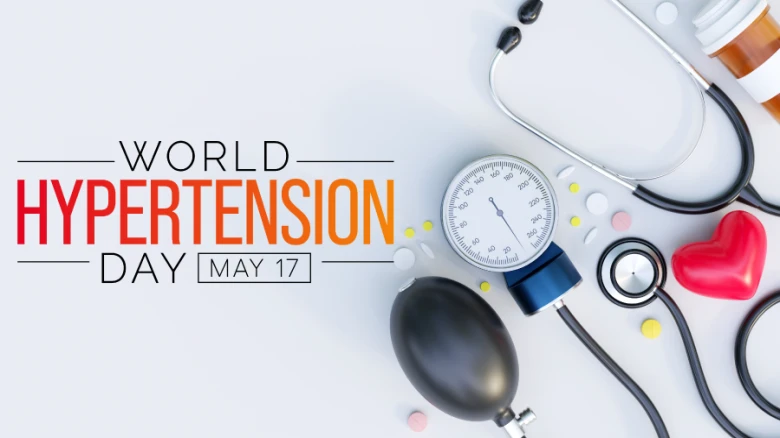International

World Hypertension Day 2023: High blood pressure, also known as hypertension, is a common health condition that can lead to major health...
Digital Desk: Millions of people in India are affected by hypertension, which is also known as high blood pressure. The World Health Organisation reports that at least one in four people in India suffers from hypertension. However, only 12% of them are able to maintain their blood pressure under control.
According to the WHO, India aims to reduce the incidence of hypertension (high blood pressure) by 25% from current levels by 2025. Hypertension is defined as blood pushing against artery walls with an excessive amount of force. People can, however, reduce their risk of developing hypertension by making changes to their lifestyles.
Here are five suggested lifestyle changes:
1. Maintain a Healthy Weight: Being overweight or obese substantially raises the risk of developing high blood pressure. Maintaining a healthy weight can help you lessen the strain on your cardiovascular system and lower your blood pressure. Focus on a well-balanced diet that includes fruits, vegetables, whole grains, lean proteins, and healthy fats. In addition, to help with weight management, engage in regular physical activity.
2. Adopt a Balanced Diet: A heart-healthy diet known as the Dietary Approaches to Stop Hypertension (DASH) diet has been proven to effectively control blood pressure. It emphasises fruits, vegetables, whole grains, lean proteins, and low-fat dairy products while minimizing sodium, saturated fats, and cholesterol. Limit your consumption of processed foods, fast food, and sugary beverages, which are heavy in sodium and unhealthy fats.
3. Limit Sodium Intake: A high sodium intake is closely linked to hypertension. Reduce your intake of salty foods such as processed meats, canned soups, fast food, and snacks like chips. Be aware of hidden salt sources in condiments, sauces, and restaurant meals. Aim for no more than 2,300 milligrammes of salt per day, or even less if you have high blood pressure.
4. Exercise Regularly: Regular physical activity is essential for maintaining a healthy lifestyle and lowering blood pressure. Aim for 150 minutes of moderate-intensity aerobic activity each week or 75 minutes of vigorous-intensity aerobic activity. Physical activities such as brisk walking, jogging, swimming, cycling, or dancing can be useful. Before beginning any fitness programme, consult with your doctor.
5. Manage Stress: Chronic stress might contribute to high blood pressure. Find healthy ways to control and reduce stress in your life. This may include practising relaxation techniques such as deep breathing exercises, meditation, yoga, or tai chi. Consider things that bring you joy and help you relax, such as hobbies, spending time with loved ones, or being outside in nature.
Leave A Comment